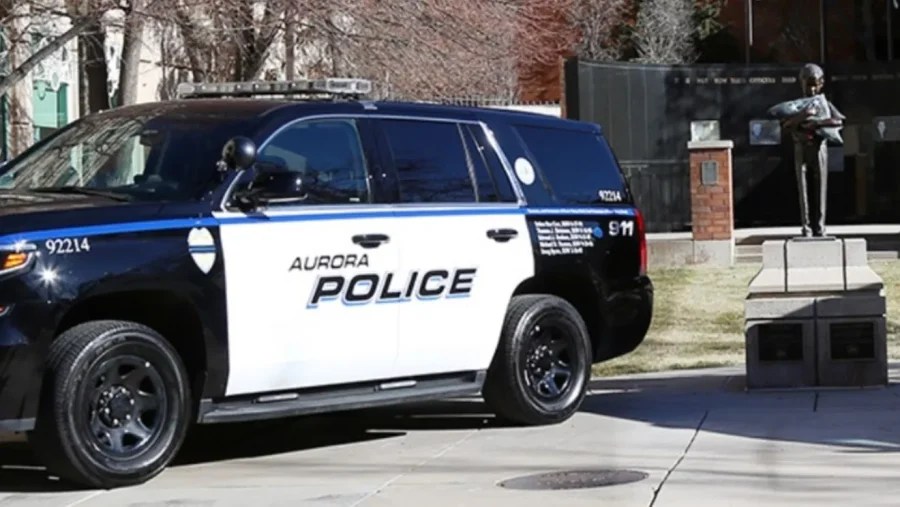
Aurora Police Department

Audio By Carbonatix
While hundreds showed their outrage at Denver’s use of Flock Cameras, which use artificial intelligence to collect and track data from cars, the Aurora City Council approved the use of facial recognition technology for its police department on Monday, October 20.
The Aurora City Council voted 5-2 in favor of allowing the use of facial recognition technology. According to APD, it plans to use two software platforms that rely on artificial intelligence: one provided by Clearview AI that matches an uploaded image to publicly available images, and a LexisNexis platform known as the Accurint Virtual Crime Center (also known as Accurint, AVCC or Lumen), which compares an uploaded photo across databases used by more than 140 law enforcement agencies in Colorado, according to the City of Aurora.
Chris Poppe, an APD commander, told councilmembers on Monday that APD will use the AI facial recognition software platforms for investigative leads and not for probable cause to make an arrest.
“We will not use it for civil immigration enforcement,” Poppe promised. “We also will not use it for ongoing surveillance or persistent tracking without the authorization of a judge.”
Councilwoman Alison Coombs, one of the two dissenting votes alongside Councilman Ruben Medina, brought up a multi-million dollar lawsuit against Clearview AI by the ACLU. The lawsuit, filed in Illinois, came after the New York Times revealed in 2020 that Clearview AI was building and training an AI-based surveillance tool with faceprints collected from online photos of people. Clearview AI settled the class-action lawsuit earlier this year for nearly $52 million.
“The vendor does not keep our images,” Poppe said in response to Coombs’s concerns. The images won’t be stored in databases owned by Clearview AI and LexisNexis, he said, but “they’re maintained within our chain of evidence.”
Coombs was hardly convinced and still questioned how trustworthy Clearview is. Aurora City Attorney Pete Schulte responded by saying that the company had “amended their pattern in practice on how they collect and store data.”
Denver’s council has been less supportive of AI. On Wednesday, Denver Councilwoman Sarah Parady warned a town hall of hundreds that “we’re using [Flock Cameras] to train everybody else’s tool to track us…that’s the real value of our data.” Public pressure led to Denver Mayor Mike Johnston renegotiating his deal with Flock Safety, an Atlanta-based company. The city now plans to issue a $100,000 fine every time Denver’s data is shared with anyone by the Denver Police Department, but the majority of councilmembers are still angry that Johnston signed a deal with the Flock.
The Denver town hall had a large turnout driven by fears that federal agencies, like Immigration and Customs Enforcement, could obtain data collected by Flock. Aurora councilmembers didn’t bring up the same fears, but LexisNexis has notably spent two years fighting a class-action lawsuit over its $22.1 million deal with ICE to hand over people’s names, phone numbers, jobs histories, car information and other data gathered through day-to-day consumer transactions; LexisNexis successfully had the case thrown out in U.S. District Court in 2024, allowing it to continue dealing personal information to ICE.
A 2022 lawsuit, Castellanos Ramirez et al vs. LexisNexis Risk Solutions, specifically named Accurint, the software that APD is eyeing, as the technology that ICE used to target people for potential arrests and deportation, including three immigrant activists who were part of the lawsuit.
According to APD, police only want Accurint to compare pictures of people across “thousands of criminal justice record images” and take over a task that officers have been doing manually. “The facial recognition algorithm will rank potential matches in a manner that allows for a simplified process of human review,” APD wrote in its accountability report for Accurint.
Poppe told the council on Monday that the Accurint facial recognition technology will help APD “enhance productivity, increase crime solvability and ultimately it’ll increase safety.”
He also vouched for the steps taken by APD to be transparent. APD and the City of Aurora held three public meetings to get public feedback on the two reports about the software platforms from Clearview AI and LexisNexis, but neither report mentions artificial intelligence nor the lawsuits against the companies.